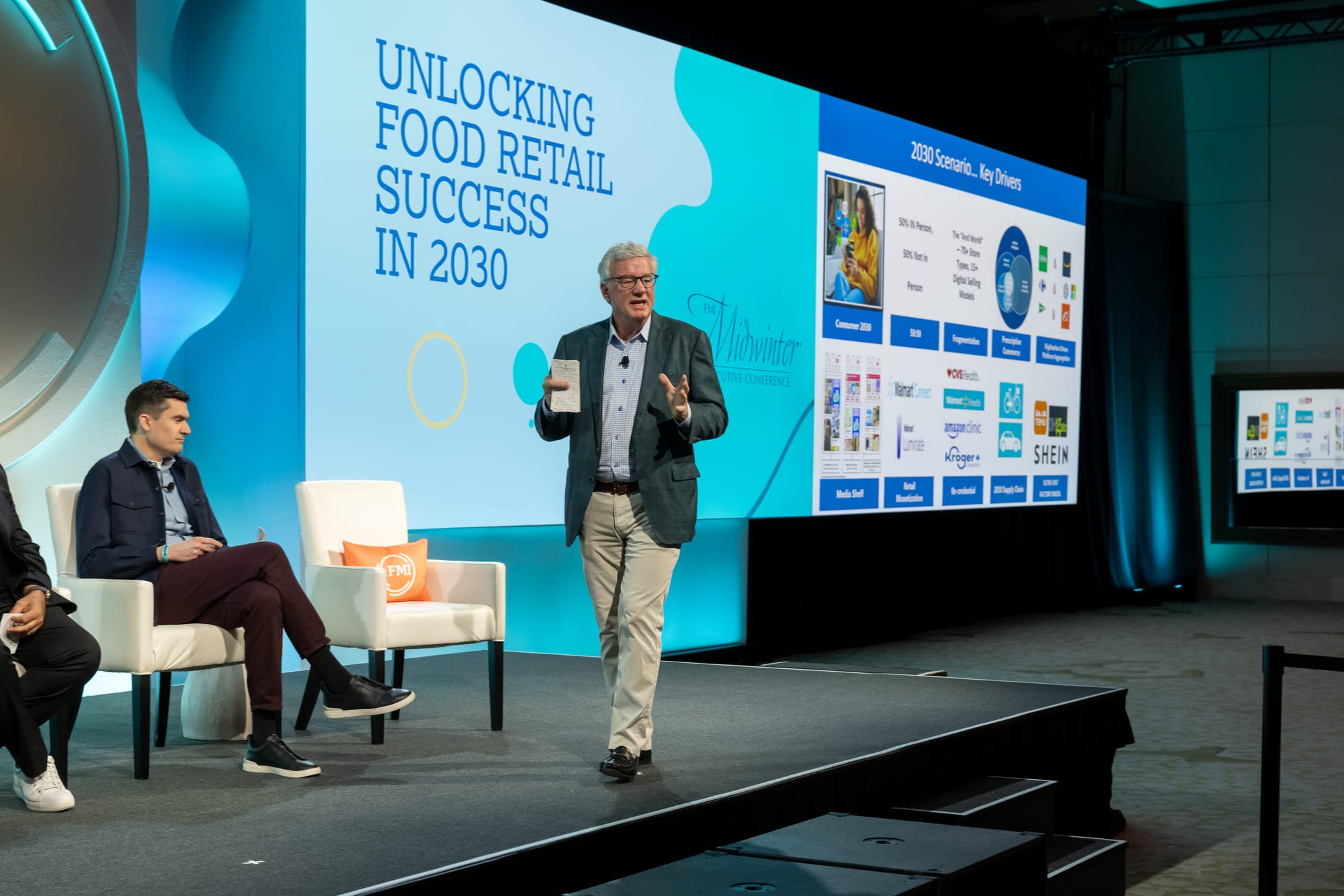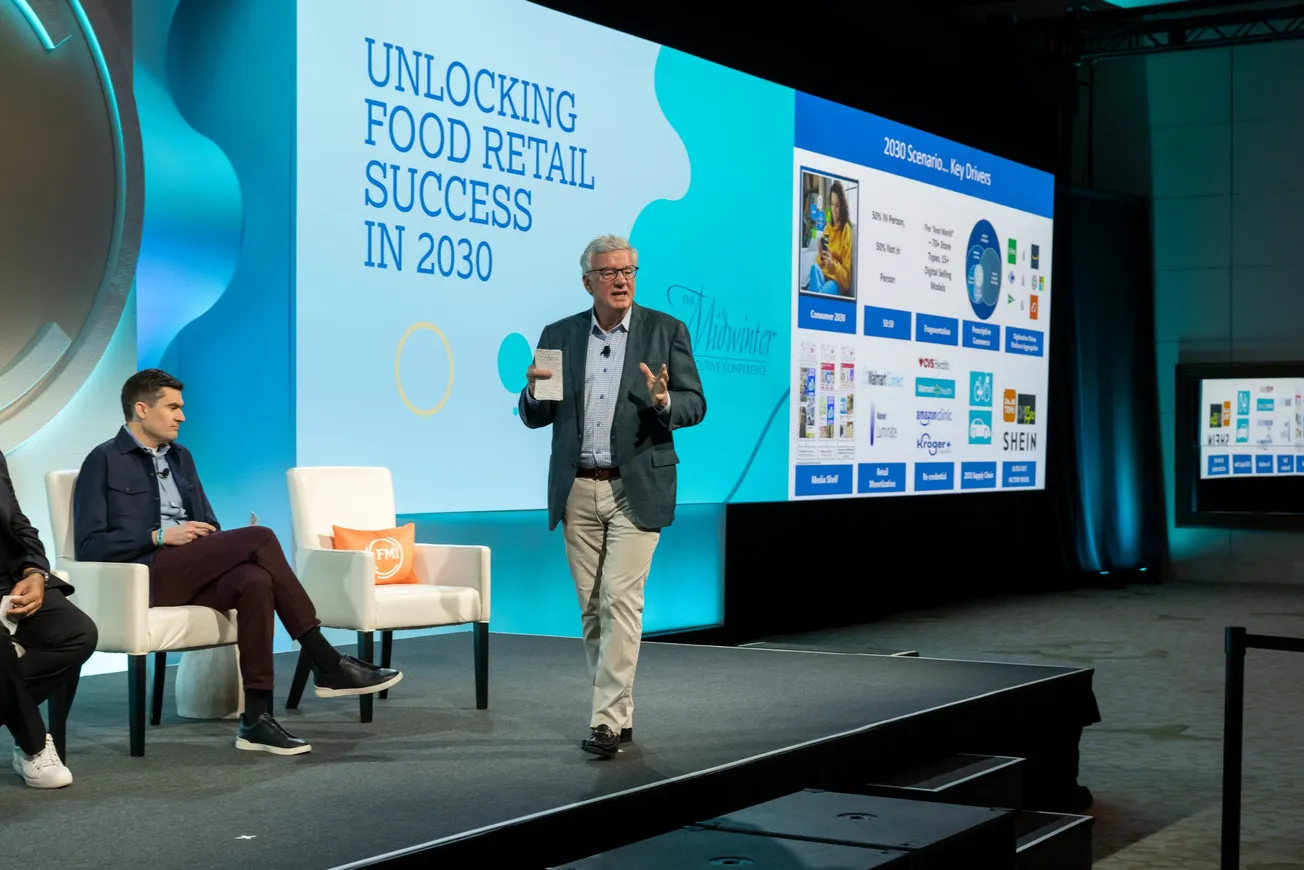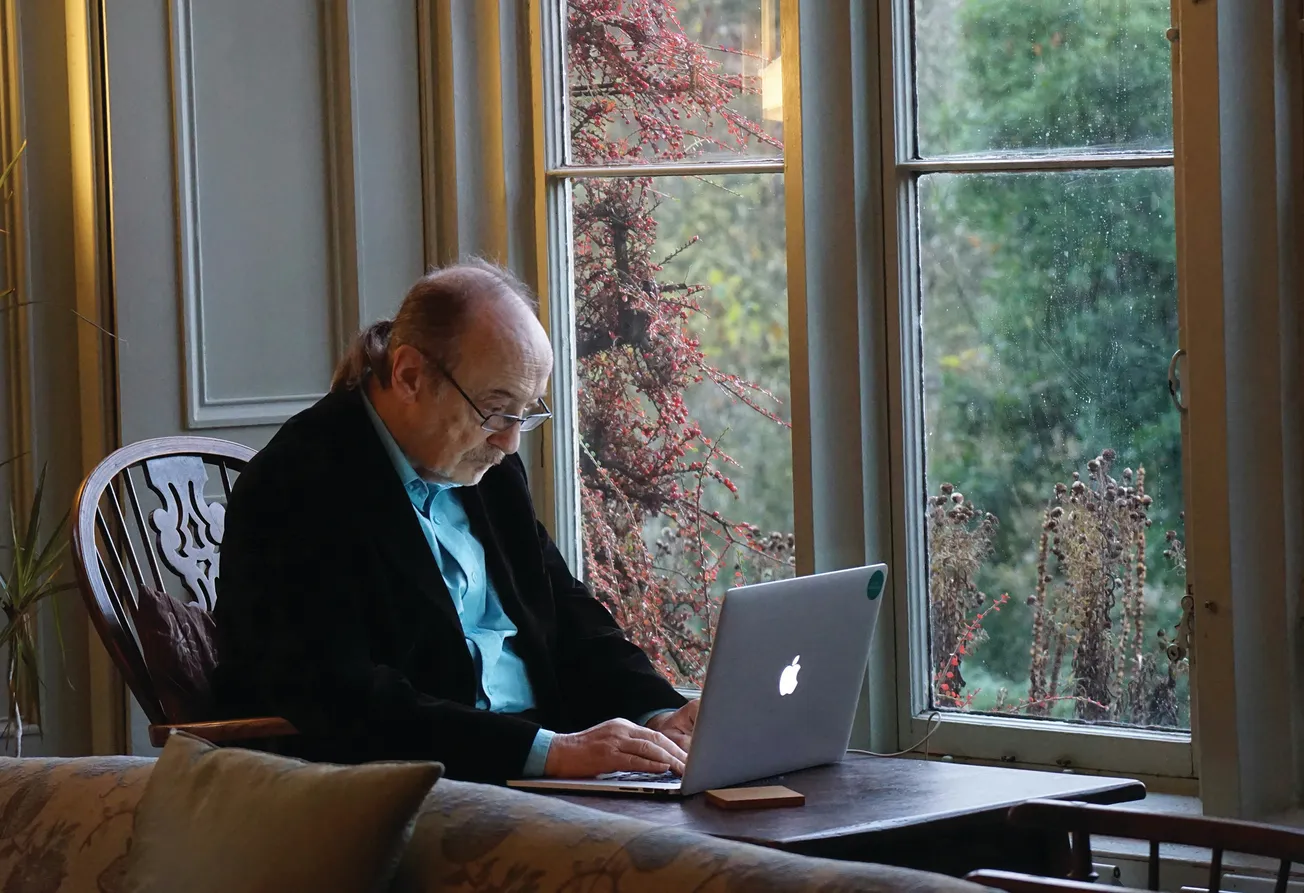“The future is purchased by the present,” wrote Samuel Johnson in one of his essays for The Rambler.

Dan O’Connor speaking at FMI Midwinter Conference last month.
That idea was reflected during a panel discussion at last month’s FMI Midwinter Conference. Members of the group — which included David Best, president and chief operating officer of Coborn’s Inc.; Sandy Douglas, chief executive officer of UNFI; Dan O’Connor, executive fellow at Harvard Business School; Sri Rajagopalan, chief customer officer at General Mills Inc.; and Mark Baum, FMI – The Food Industry Association’s chief collaboration officer and senior vice president of industry relations — examined the disruptive forces that are reshaping the retail and CPG sectors, and warned that companies that fail to adapt and prepare for what comes next will find it difficult to remain competitive.
O’Connor, who spends much of his time working on long-term strategic issues, provided the framework for the discussion by summarizing the most significant factors impacting the evolution of the marketplace. Companies need to have a coherent strategy, encompassing the right talent, organizational model and deployment of capital, he said, in order to create and deliver value. To put those building blocks in place, they must contend with a diverse array of challenges — shifts in consumer behavior, the state of the economy, and the structure of the industry, among them. Technology is, arguably, the most important driver of change.
“I believe digitalization will transcend every part of retail, but more importantly, some part of retail will take place in person, some part of retail will not take place in person,” O’Connor noted. “How we compete when the consumer’s in person and how we compete when they’re not in person is a critical decision for each of us to begin to think through. At the same time, the channels — that is, the number of ways that consumers can connect with merchandise — continue to expand, not contract.”
Combining the power of artificial intelligence with the wealth of data at the industry’s disposal will be a game changer.
“Nothing will be more profound than the collapse between data and decisions and the disintermediation and the number of people that sit between data and decisions,” O’Connor asserted. “Individual category managers and leaders are going to be faced with more rapid decisions to make in their companies. Many of us will choose not to make those decisions. We’ll enable the technology itself to make a choice, not only to predict what the right action is, but to actually instruct the people in the company to take that action. This is called prescriptive commerce.”
He predicted that increasing reliance on advanced systems will lead to the emergence of a handful of dominant platform providers (e.g., Amazon, Alibaba and Microsoft) — fundamentally altering the way that companies cooperate and compete. The paradigm shift will reverberate well beyond the supermarket business.
“We all know what the world looks like today in terms of health care,” said O’Connor, “and I believe that retailers have the right to earn 10% of health care expenditures beyond the pharmacy. But understanding what the right strategy and direction is to earn that market share is a fundamental question. Bringing together pharmacy and care and food is one of the central strategies that each of us will have to answer as we head out to the world of 2030.”
Coborn’s, which operates 77 grocery stores in the upper Midwest, reflects the changing dynamics. A relatively small retailer, the company is capitalizing on its agility as it revamps its business model.
“We have to all accept and understand it’s an ‘and world,” Best noted. “We have to compete today, and we have to build for the future. I know a lot of us sitting through vendor meetings are talking about what’s happening in the business right now.
“We’ve got to shift a tiny bit of our mindset to start to think about and imagine what that future is. Partnerships are critical. Coborn’s is a family-owned and employee-owned company, with about $2 billion in sales. One of the best things about being the size we are, is we actually have built great partnerships and don’t have to go it alone.”
Rajagopalan stressed the importance of maintaining openness to new ideas as General Mills looks to the future. “The most important talent virtue today that builds for tomorrow and ensures that the operating styles match the consumer needs of tomorrow is curiosity.”
UNFI’s Douglas concurred: “We bring a curiosity mindset, a learning mindset, whether you’re a consumer products company or you’re in wholesale business. We commit ourselves to the vibrancy, the richness and the diversity of this retail channel because it’s highly correlated with value. Then we make a commitment to partner and to trust, because learning takes trust. And then we act together, building new models, looking at competitors differently, ultimately with the consumer and the long-term vision in mind.”
Adhering to a consumer-centric vision in a digitally based marketplace will require new strategies and tactics, according to O’Connor.
“The notion that all commerce is digitalized, whether it’s in person or not in person, leads to the question ‘who will host it?’ ” he said. “I suggested earlier that most retailers will decide, ‘You know what? I’m going to ride on someone else’s platform.’ I suggest we’re going to need 10 to 12 of those platforms in the world, highly concentrated.
“The way we compete in that new world is going to require a very different approach organizationally, but also it’s going to require us to not only work with our competitors in a sense, but learn how to cooperate. This is a world that we call ‘coopetition.’ Learning how to work in the world of coopetition is going to be really important.”
The panelists’ task was “Unlocking Food Retail Success in 2030,” but the insights they shared are applicable across the board. It behooves retailers, CPG suppliers and companies of all kinds to extend their field of vision beyond the boundaries of the next quarter or fiscal year.









